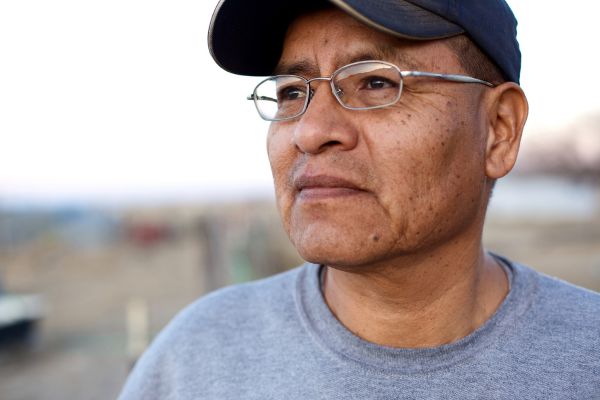
- Details
- By Kaili Berg
The study appears online in Cancer Causes and Control, a peer-reviewed medical journal published by Springer Science+Business Media.
According to the study, prostate cancer is the second most common cause of cancer death in men the United States and the second most common cancer-related death in AI/AN men.
While AI/AN men have a higher rate of death from prostate cancer — especially between the ages of 50-59 years old — they are less likely to be diagnosed with prostate cancer.
Associate professor Chris Gillette, the study's principal author, notes that this may happen because, without timely screenings, AI/AN men aren’t seeking care until their prostate cancer is more advanced.
There are two tests that providers can use that help diagnose prostate cancer, including a digital rectal exam (DRE) and blood tests that measure the amount of prostate-specific antigen (PSA).
“We found that AI/AN men were significantly less likely to receive a PSA test than non-AI/AN men,” Gillette said in the study.
The study conducted a secondary analysis of the National Ambulatory Medicare Care Survey (NAMCS), which showed a disparity in cancer screening that could potentially impact prostate cancer mortality in Native men.
At the national level, AI/AN men were significantly less likely to receive PSA and DRE than non-AI/AN men during the years 2013-2016 and 2018 during physician visits to non-federal clinics. There were zero instances of DREs in the traditional NAMCS over the entire five-year period and there were no PSAs conducted after 2014.
The study concluded that efforts are needed to better understand why providers may not use PSA and DRE with AI/AN men compared to men in other racial or ethnic groups.
“Additional research is needed to explore how providers discuss PSA and DRE with this population, why there are differences in screening practices and to examine access to care,” Gillette said.
Tell Us What You Think
More Stories Like This
New Mexico Will Investigate Forced Sterilization of Native American WomenUSDA Expands Aid for Lost Farming Revenue Due to 2025 Policies
Two Feathers Native American Family Services Wins 2026 Irvine Leadership Award
Bill Would Give Federal Marshals Authority to Help Tribes Find Missing Children
Indian Health Service to Phase Out Mercury-Containing Dental Amalgam by 2027


